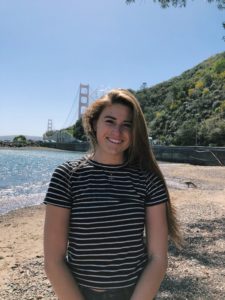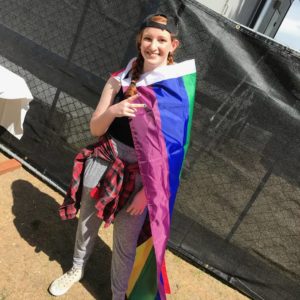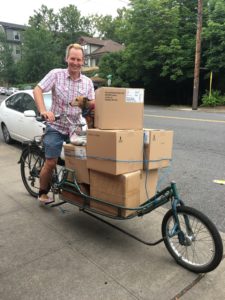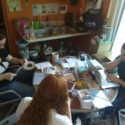
End of Watch — Hanna’s Last Day
 A couple of months ago I was lucky enough to be accepted as a summer intern at Microcosm Publishing. I’m from California, which meant that I would be spending the summer moving to a brand new city completely separate from my family, friends, and basically everything I know. I won’t say that this wasn’t a little scary; it was. But the opportunity was far too great to pass up. So I moved up the coast and settled myself into the City of Roses.
A couple of months ago I was lucky enough to be accepted as a summer intern at Microcosm Publishing. I’m from California, which meant that I would be spending the summer moving to a brand new city completely separate from my family, friends, and basically everything I know. I won’t say that this wasn’t a little scary; it was. But the opportunity was far too great to pass up. So I moved up the coast and settled myself into the City of Roses.They want to bring books that diversify people’s understanding of the world, that help people’s voices be heard, that improve communities, to their readers. They are always looking for new experiences, new voices, new books, things that hadn’t been done before. I don’t have much experience within the corporate world, but it was touching to see how this company truly focused on things that mattered. I felt this in every single aspect of the company, from the books I saw being edited and published, to their outreach with the community, to every single detail.

And the company cares; about its readers, about its employees, even about the lowly interns. They wanted my experience to be positive; they wanted me to feel that my contribution was valid, that I wasn’t just doing busy work that no one else could be bothered to do. There was a purpose for everything I worked on. I got a hands-on learning experience that I would never have expected normally. I was able to work on and help edit actual books, and do tasks that I would never have dreamed of with normal intern duties.

I want to thank all of my bosses and co-workers for making me feel so safe and welcome – when I struggled or was confused they were there to support and teach me. I was able to learn with some great teachers, and I truly feel that I have grown and learned a lot over this summer. I know I am incredibly lucky in this aspect, many people simply do internships for the small line on their resume, they send meaningless emails for a couple of months, and then leave with no true impact being made. I hope that I have been able to leave my footprint in this company, and cannot express my thanks and gratitude enough to everyone working here for their support, the work they helped me accomplish, and the world-view they allowed me to see.
If you want to know more about volunteering or internships at microcosm, check out the FAQ and send us a message.



